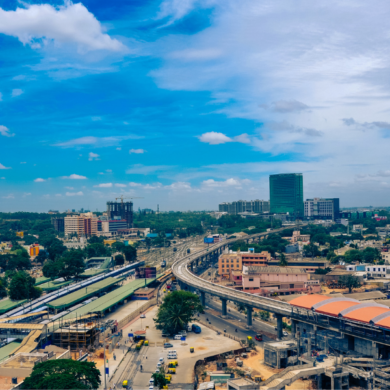
Understand GST on residential property – including its impact on rent, purchase, and sale. This comprehensive guide covers GST rules, rates, and exemptions to help you make informed decisions.
Navigating the complexities of GST on residential property is essential for buyers, sellers, tenants, investors, individuals, and families. Whether it is the GST on rent of residential property or the GST on purchase of residential property, understanding these rules can help you manage costs and compliance effectively. This comprehensive blog simplifies key aspects such as GST rates, exemptions, and conditions – ensuring you are well-informed for every real estate transaction.
Table of Contents
Importance of Understanding GST in the Real Estate Sector
Understanding GST on residential property is important for all stakeholders in Indian real estate. GST has streamlined taxation by replacing multiple indirect taxes, but it also impacts property costs, rental income, and compliance obligations.
Buyers and tenants benefit from transparency in taxation, while developers must work with GST implications on construction and sale. Being aware of GST rules ensures accurate budgeting, and avoids potential penalties.
What is GST on Residential Property?
GST on residential property refers to the Goods and Services Tax levied on transactions such as purchase, sale, rent, and construction of residential units. The tax applies to under-construction properties, but not to completed ones where Completion Certificate has been issued. While the GST on rent of residential property depends on its use, exemptions may apply under certain conditions.
Key Differences Between Pre-GST and Post-GST Scenarios in the Real Estate Market
The implementation of the Goods and Services Tax (GST) in India marked a significant turning point for the real estate sector. Before GST, the industry was governed by a maze of indirect taxes, creating confusion for both developers and buyers. Post-GST, the sector witnessed a streamlined tax structure – aiming for transparency, efficiency, and uniformity.
Pre-GST Era
- Multiple taxes – including VAT, service tax, and registration fees – created complexities
- Lack of uniformity in tax rates across states
- Cumbersome compliance processes
Post-GST Era
- Uniform taxation under a single framework, enhancing transparency
- Input tax credit (ITC) available to developers for construction materials, reducing overall costs
- GST applies only to under-construction properties, simplifying tax calculations for buyers
Read More: 8 Things to Check Before Buying a Flat in Bangalore 2024
Applicability of GST on Residential Properties
Navigating the tax implications of real estate transactions can be daunting, especially when it comes to understanding GST on residential property. Whether you are a first-time homebuyer or an investor, clarity on the applicability of this tax is crucial to making informed financial decisions.
When GST is Applicable
- Purchase of under-construction properties, including those booked before completion
- Rental income from residential properties used for commercial purposes
- Additional costs such as parking, club membership, and maintenance charges – if bundled with the property
Scenarios Where GST is Not Applicable
- Completed properties with a Completion Certificate issued
- Residential properties rented exclusively for personal use
- Resale transactions of properties, as these fall under stamp duty and registration charges
GST on Purchase of Residential Property: 2025 Update
GST is applicable to under-construction properties, but not on ready-to-move-in homes with Completion Certificate. Buyers of under-construction properties are subject to GST, adding to their overall expenses.
GST Rates for Affordable and Non-Affordable Housing Categories
- Affordable Housing: GST is levied at 1% without Input Tax Credit. Properties priced up to ₹45 lakh qualify under this category, with carpet area limits of 60 sq m in metro cities and 90 sq m in non-metro cities.
- Non-Affordable Housing: GST is charged at 5% without ITC, on properties that do not meet the affordable housing criteria
Clarification on GST for Additional Costs
- Parking: GST applies if parking is sold as part of the property agreement
- Maintenance Charges: Residential societies charging more than ₹7500 per month per home attract GST at 18%
- Club Membership and Amenities: These are taxed at the applicable GST rate, if included in the agreement
Read More: What is Sale Deed? – Meaning, Format, Process
GST on Rent of Residential Property
Understanding the nuances of GST on rent of residential property is essential, for landlords and tenants alike. While certain types of rental income are subject to GST, there are notable exemptions that can significantly ease the compliance burden for many individuals.
Current GST Rates for Residential Property Rent
- Residential properties rented out for commercial purposes attract GST at 18%
- There is no GST on rent of residential property, if it is for personal use
Exemptions Under GST, for Rental Income from Residential Properties
- Properties rented for personal residential use are exempt from GST
- If rental income is below the threshold limit of ₹20 lakh (₹10 lakh for special category states), GST registration and compliance are not required
GST on Sale of Residential Property
This applies only if the property is under construction at the time of sale. Completed properties with a Completion Certificate are exempt from GST. The tax is levied on the value of the property as per the agreement, excluding stamp duty and registration charges. In case of resale, GST on residential property does not apply, as such transactions fall outside the purview of this tax.
Clarification on Input Tax Credit (ITC) and Its Restrictions
ITC allows developers to offset GST paid on construction materials and services, thereby reducing their tax liability. However, restrictions on ITC include the following cases:
- ITC is not available for properties sold under the 1% GST rate for affordable housing or the 5% GST rate for non-affordable housing
- Developers can claim ITC for properties sold during the construction phase. For ready-to-move-in units, where GST on purchase of residential property is not applicable, ITC cannot be availed.
- ITC cannot be transferred to buyers or adjusted against other tax obligations.
Special Considerations for Luxury Residential Properties
Since they are classified as non-affordable, luxury residential properties attract 5% GST on residential property purchase without ITC. Key considerations include:
- Additional Costs: GST applies to parking, club membership, and premium features, with rates ranging from 12% to 18%
- High-value Transactions: Properties priced above ₹45 lakh fall into the non-affordable category and may incur higher tax liabilities
- Customised Additions: Imported materials or bespoke designs in luxury homes may attract additional GST, impacting the overall cost
Understanding the nuances of GST on sale of residential property ensures compliance, and helps buyers take well-informed financial decisions.
Read More: Capital Gains Tax in India: A Complete Guide for Property Investors
GST on Affordable Housing
Affordable housing under GST laws refers to properties meeting specific criteria, which is price cap of ₹45 lakh and carpet area limits of 60 sq m in metro cities and 90 sq m in non-metro areas.
Benefits for Buyers of Affordable Housing
- Reduced GST Rates: Properties under the affordable category attract a GST rate of 1% without Input Tax Credit (ITC), reducing overall costs for buyers
- Cost Transparency: GST on residential property ensures simplified taxation, eliminating hidden charges
- Support for First-time Buyers: Affordable housing GST concessions help many buyers achieve homeownership
Government Initiatives and GST Concessions
Government initiatives, such as the Pradhan Mantri Awas Yojana (PMAY), align with the concessions provided under GST on residential property. These measures aim to promote housing for all, and make properties more affordable for buyers. Developers may benefit from ITC on construction inputs, indirectly reducing costs for customers.
GST on Premium Properties
Premium or luxury housing attracts a GST rate of 5% without ITC. This applies to properties priced above ₹45 lakh or exceeding the size limits defined for affordable housing.
Key Considerations for Premium and Luxury Properties
- Additional Costs: GST is charged at 12%-18% on premium amenities such as parking, club memberships, and customised features – impacting the overall GST on purchase of residential property
- Customisation: Luxury properties with bespoke designs often involve higher GST rates due to imported materials and specialised fittings
- Market Positioning: Buyers of premium properties face higher tax implications, which can influence demand in this segment
Tabular Comparison of GST Impact on Property Types
| Property Type | GST Rate | ITC Available | Scope |
| Affordable Housing | 1% | No | Properties priced ≤ ₹45 lakh |
| Non-Affordable Housing | 5% | No | Properties exceeding affordable housing limits |
| Luxury Properties | 5% (basic) | No | Additional GST on premium features (12%-18%) |
How GST Impacts Property Buyers and Developers
For Buyers
- Increased Transparency: GST on residential property has replaced multiple indirect taxes, offering clear cost structures
- Higher Initial Costs: Buyers of under-construction properties face GST on purchase of residential property, increasing upfront costs compared to ready-to-move-in homes
- Cost Clarity: GST on additional costs like parking, maintenance, and club memberships ensures buyers can plan their budgets effectively
For Developers
- Reduced Tax Burden: Developers can leverage ITC on construction materials to lower their costs
- Compliance Requirements: The GST framework demands adherence to rules, particularly regarding GST on residential property under construction
- Strategic Pricing: Developers must align pricing strategies with GST regulations, to remain competitive and attract buyers
Read More: What is Property? Definition, Types, Valuation, Taxation
Exemptions and Benefits Under GST
The introduction of GST in the real estate sector has not only streamlined taxation, but also provided certain exemptions and benefits to homebuyers & developers. Here are the key exemptions and benefits:
Exemptions
- Completed Properties: GST is not applicable on ready-to-move-in properties, if Completion Certificate is issued
- Resale Properties: Properties sold in the secondary market are exempt from GST, and only attract stamp duty & registration charges
- Rental Income for Residential Use: Residential properties rented exclusively for personal use are exempt from GST, making housing more affordable
Benefits
- Reduced Taxation for Affordable Housing: Properties classified as affordable housing attract a lower GST rate of 1%, making them accessible to a larger segment of buyers
- Simplified Compliance: GST has replaced multiple indirect taxes, reducing confusion and ensuring uniformity
- Clarity on Additional Costs: GST applicability on parking, maintenance, and other charges provides transparency in total property costs
Common Misconceptions About GST on Residential Property; and their Clarifications
Misunderstandings about GST in real estate often lead to confusion among buyers and sellers. Clarifying these misconceptions helps stakeholders take informed decisions.
Misconception 1: GST on Resale Properties
Clarification: GST is not applicable on the resale of residential properties. Such transactions are considered immovable property sales, and are subject to stamp duty & registration charges instead.
Misconception 2: GST Applicability on Ready-to-Move-in Properties
Clarification: Ready-to-move-in properties with Completion Certificate are exempt from GST. Buyers of such properties pay stamp duty and registration charges, reducing overall costs.
Misconception 3: Dual Taxation Concerns
Clarification: GST replaces multiple indirect taxes, eliminating dual taxation concerns. Buyers no longer face overlapping taxes such as VAT, service tax, and excise duty – simplifying the tax structure.
How GST Simplifies Taxation in Real Estate
GST has transformed Indian real estate by introducing a unified and transparent taxation framework. Key simplifications include:
- Uniform Tax Rates: A single tax rate across the country eliminates disparities in state-level taxation
- Reduction in Cascading Taxes: By subsuming multiple indirect taxes, GST prevents double taxation and reduces overall property costs
- Streamlined Compliance: Developers and buyers benefit from simplified documentation and clear tax slabs, reducing confusion
- Enhanced Transparency: GST outlines clear applicability on various property types, ensuring buyers understand their financial obligations
Challenges and Ambiguities Faced by Stakeholders in the Real Estate Market
The implementation of GST has streamlined taxation, but stakeholders in Indian real estate still face challenges and ambiguities that require attention for seamless operations.
Key Challenges
- Understanding Tax Applicability: Many buyers and developers are unable to differentiate between properties subject to GST and those exempt from it, such as ready-to-move-in and resale properties
- Ambiguity in Additional Costs: Uncertainty around GST on additional charges like parking, maintenance, and club memberships leads to confusion in final cost calculations
- Complex Compliance for Developers: Developers may face challenges in managing Input Tax Credit and ensuring accurate tax filings for under-construction projects
- Varying Perceptions: Misconceptions about dual taxation and GST rates can impact buyer confidence and market activity
- Impact on Luxury Properties: High GST rates on premium properties may discourage buyers, affecting the sales of luxury homes
6 Steps to Ensure GST Compliance While Buying Property
Understanding GST rules is essential to avoid compliance issues and unexpected costs, while buying a property. Listed below are 6 actionable steps that can help you ensure GST compliance:
- Verify Property Status: Confirm whether the property is under construction or ready-to-move-in, as GST is applicable only on under-construction properties
- Understand GST Rates: Check the applicable GST rate based on the property category (e.g., 1% for affordable housing and 5% for non-affordable housing)
- Review Additional Costs: Ensure clarity on GST charges for parking, maintenance, and other amenities included in the agreement
- Check for Completion Certificate: Verify if Completion Certificate has been issued for the property, which makes it exempt from GST
- Evaluate ITC Benefits: For under-construction properties, ensure the developer has passed on any ITC benefits, if applicable, to reduce your overall cost
- Consult Professionals: Seek advice from legal or tax professionals to ensure compliance with GST regulations and avoid discrepancies
Conclusion
GST has introduced a unified tax structure, simplifying real estate transactions in India while promoting transparency. However, a few challenges and ambiguities may persist, requiring both buyers and developers to stay informed and compliant.
Understanding GST on residential property, its rates, and exemptions can help buyers take well-informed decisions. By following best practices for compliance and seeking expert advice, stakeholders can navigate the complexities of GST – ensuring smooth and transparent transactions in Indian real estate.
FAQs
1. Is GST applicable on residential property?
Yes, GST is applicable on residential property if it is under construction, but not on completed properties with Completion Certificate or resale properties.
2. What is the GST rate on housing property?
The GST rate on housing property is 1% for affordable housing and 5% for non-affordable housing, both without Input Tax Credit (ITC).
3. How to calculate GST on residential property?
You can calculate GST on residential property by applying the relevant tax rate on the agreement value, excluding stamp duty and registration charges.
4. What is the new rule of GST on rental property?
The new rule of GST on rental property mandates that tax is applicable if it is rented for commercial purposes or if the landlord is registered under GST.
5. Is property tax exempt from GST?
Yes, property tax is exempt from GST as it is a direct tax levied by municipal authorities, not covered under GST laws.
6. Is GST included in the cost of property?
No, GST is not included in the cost of property if it is completed or being resold, but applies to under-construction properties.
7. Which tax is not applicable to residential buildings?
GST is not applicable to completed residential buildings with Completion Certificate or those sold in the resale market.
8. Is GST applicable on under-construction properties?
Yes, GST is applicable on under-construction properties, with rates of 1% for affordable housing and 5% for non-affordable housing.
9. How is GST calculated for affordable housing?
GST for affordable housing is calculated at 1% of the property’s agreement value, excluding additional costs like stamp duty and registration charges.
10. Can I claim input tax credit (ITC) for GST on property purchases?
No, you cannot claim Input tax credit (ITC) for GST on property purchases.
11. Are there any exemptions for senior citizens under GST?
No, there are no exemptions for senior citizens under GST on residential property purchases or rentals.
12. Is GST applicable on rent of residential property?
No, GST is not applicable on rent of residential property for personal use, but applies if rented for commercial purposes.







